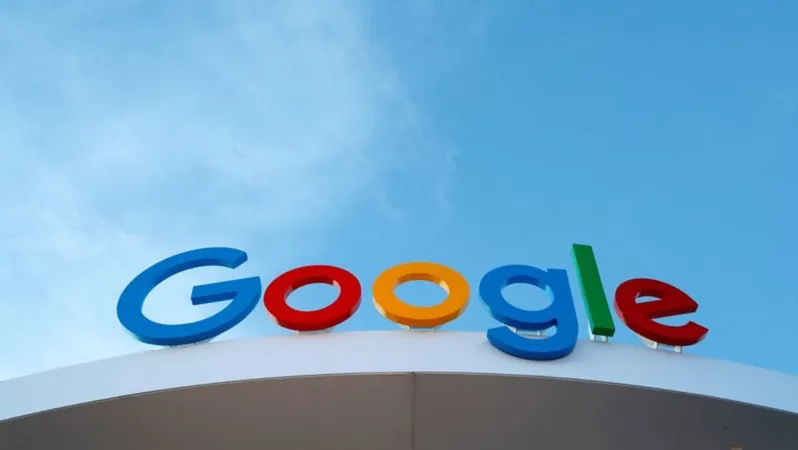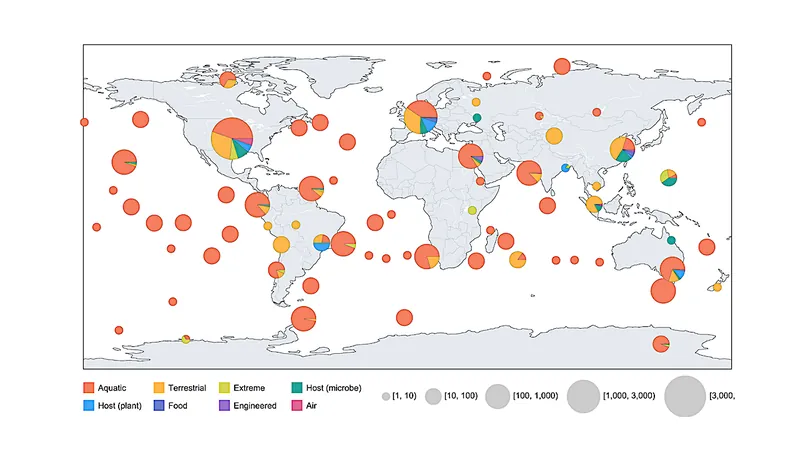
Major Shift in Mobile App Market: U.S. Judge Forces Google to Embrace Competition
2024-10-07
Author: Wei Ling
In a groundbreaking ruling on Monday, a U.S. District Judge mandated that Google must revolutionize its mobile app ecosystem to provide Android users with increased options for downloading apps and conducting transactions. This decisive action follows a jury's verdict favoring Epic Games, the creator of the immensely popular game "Fortnite."
Judge James Donato, presiding in San Francisco, issued an injunction requiring Google to modify its Play Store practices significantly. This order entails allowing the distribution of Android apps from rival app stores, a move intended to foster competition in the previously monopolized market.
One of the notable restrictions imposed by the judge is that for the next three years, Google cannot ban the use of alternative in-app payment systems. Furthermore, the ruling grants users the ability to install competing third-party Android app platforms, dismantling Google's stringent control over app distribution.
In an effort to further limit its monopolistic tendencies, the ruling prohibits Google from financially incentivizing device manufacturers to pre-install its app store and bars the company from sharing revenues generated from the Play Store with other app distributors.
Google promptly announced its intentions to appeal the verdict, signaling plans to approach the 9th U.S. Circuit Court of Appeals in San Francisco. The tech giant expressed concerns, suggesting that these changes could lead to unforeseen negative consequences for American consumers, developers, and device manufacturers.
Epic Games CEO Tim Sweeney declared the ruling “big news” on social media, revealing plans for Epic Games Store and other app platforms to debut on Google Play by 2025. Sweeney emphasized that this ruling opens the door for developers and app stores to cultivate a vibrant, competitive Android ecosystem over the next three years, ensuring that Google cannot stifle their growth.
The immediate aftermath of the ruling saw Alphabet's shares drop by 2.5%, closing at $164.39, indicating investor apprehension regarding the implications of the judge's injunction. Donato also mandated that Epic and Google appoint a three-person technical committee to oversee the implementation of the injunction's provisions.
The order is set to take effect on November 1, allowing Google some time to align its current agreements and business practices with the new requirements. Epic Games initiated its lawsuit in 2020, alleging that Google was monopolizing app access and payment processes on Android devices, and the jury's verdict in December 2023 confirmed those assertions.
Google had argued against the proposed reforms, claiming that they were excessively burdensome and could compromise user privacy and security—a stance Judge Donato largely dismissed during a hearing in August. He sternly reminded Google's legal team that accountability was necessary after being found to have monopolized the app market.
In addition to this case, Google is currently entangled in several other antitrust proceedings. Another judge recently ruled in favor of the U.S. Justice Department, affirming that Google engaged in illegal monopolistic practices to dominate web search. The company's legal troubles extend to a separate trial concerning its dominance in the advertising technology sector, showcasing a pattern of growing scrutiny over its market practices.
As this battle over app store competition unfolds, all eyes will be on how the landscape of mobile app distribution transforms, potentially reshaping the industry for years to come. Stay tuned for the latest updates on this developing story that could redefine how users interact with their apps.


 Brasil (PT)
Brasil (PT)
 Canada (EN)
Canada (EN)
 Chile (ES)
Chile (ES)
 España (ES)
España (ES)
 France (FR)
France (FR)
 Hong Kong (EN)
Hong Kong (EN)
 Italia (IT)
Italia (IT)
 日本 (JA)
日本 (JA)
 Magyarország (HU)
Magyarország (HU)
 Norge (NO)
Norge (NO)
 Polska (PL)
Polska (PL)
 Schweiz (DE)
Schweiz (DE)
 Singapore (EN)
Singapore (EN)
 Sverige (SV)
Sverige (SV)
 Suomi (FI)
Suomi (FI)
 Türkiye (TR)
Türkiye (TR)